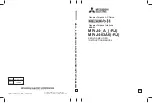
Glossary
GL-4
Cisco TelePresence System Administration Guide
OL-21845-01
E
enbloc dialing
Allows you to compose and edit the number to dial on your phone's display before it is sent to the phone
system to be dialed.
endpoint
Cisco TelePresence System (CTS) endpoint. The combination of hardware and software that comprise
a Cisco TelePresence System. The hardware for an endpoint includes a Cisco Unified IP 7900 Series
telephone, one or more large-screen meeting displays, plus presentation devices, cameras,
microphones, speakers, and in some models, lighting systems.
EWS
Exchange Web Services. Managed API that provides an intuitive interface for developing client
applications that use Exchange Web Services. The EWS Managed API provides unified access to
Microsoft Exchange Server resources, while using Microsoft Office Outlook–compatible business
logic. The EWS Managed API communicates with the Exchange Client Access server by means of
EWS
SOAP
messages.
extranet
An extranet is a private network that uses Internet protocols and network connectivity. An extranet can
be viewed as part of a company's intranet that is extended to users outside the company, usually via the
Internet. It has also been described as a “state of mind” in which the Internet is perceived as a way to
do business with a selected set of other companies (business-to-business, B2B), in isolation from all
other Internet users. In contrast, business-to-consumer (B2C) models involve known servers of one or
more companies, communicating with previously unknown consumer users.
An extranet can be understood as an intranet mapped onto the public Internet or some other
transmission system not accessible to the general public, but managed by more than one company's
administrator(s). For example, military networks of different security levels may map onto a common
military radio transmission system that never connects to the Internet. Any private network mapped
onto a public one is a virtual private network (VPN), often using special security protocols.
F
fluorescent lamp
A lamp that uses electricity to excite mercury vapor in a gas that results in an energy that produces
short-wave ultraviolet light. This light then causes a phosphor to fluoresce, producing visible light.
Sources of light in most rooms are either incandescent light bulbs that use tungsten filaments or
fluorescent lights. Each of these light sources, and the amount of light in terms of lumens or watts,
produces a different color temperature. This color temperature is sometimes expressed using terms such
cool, warm, or daylight, but can be expressed more precisely in kelvins (K) as a numeric value. When
adjusting the images on the display screens for the Cisco TelePresence system, you must take the color
temperature of the ambient light in the room into consideration.
full duplex mode
Transmission of data in two directions simultaneously.













































